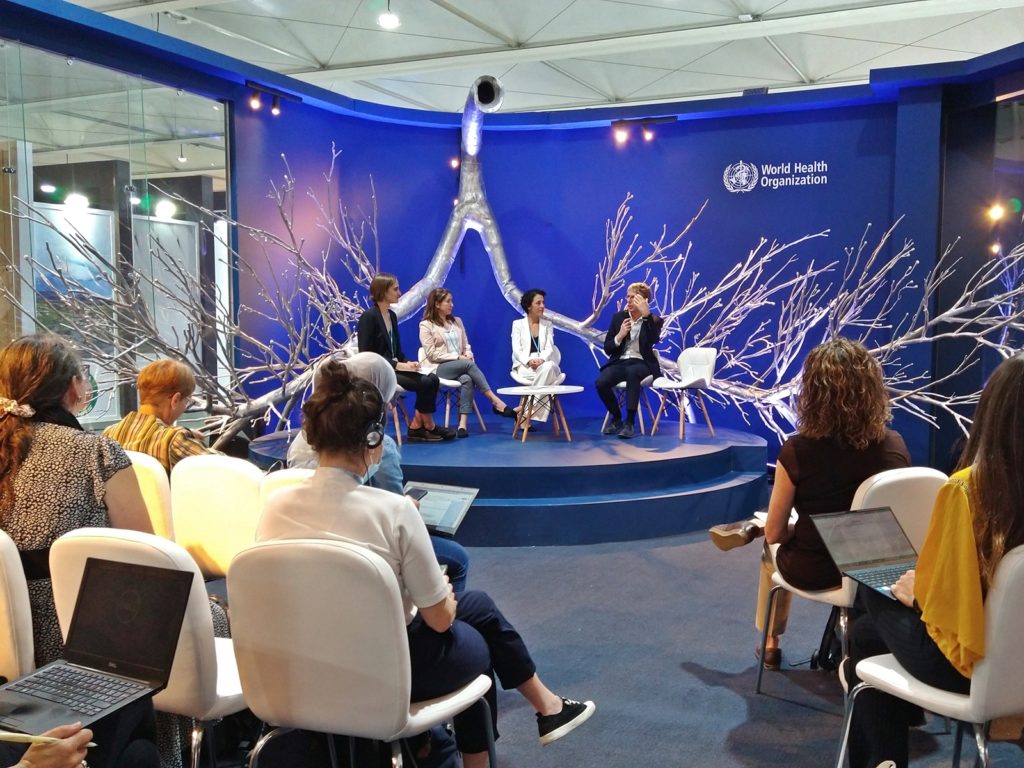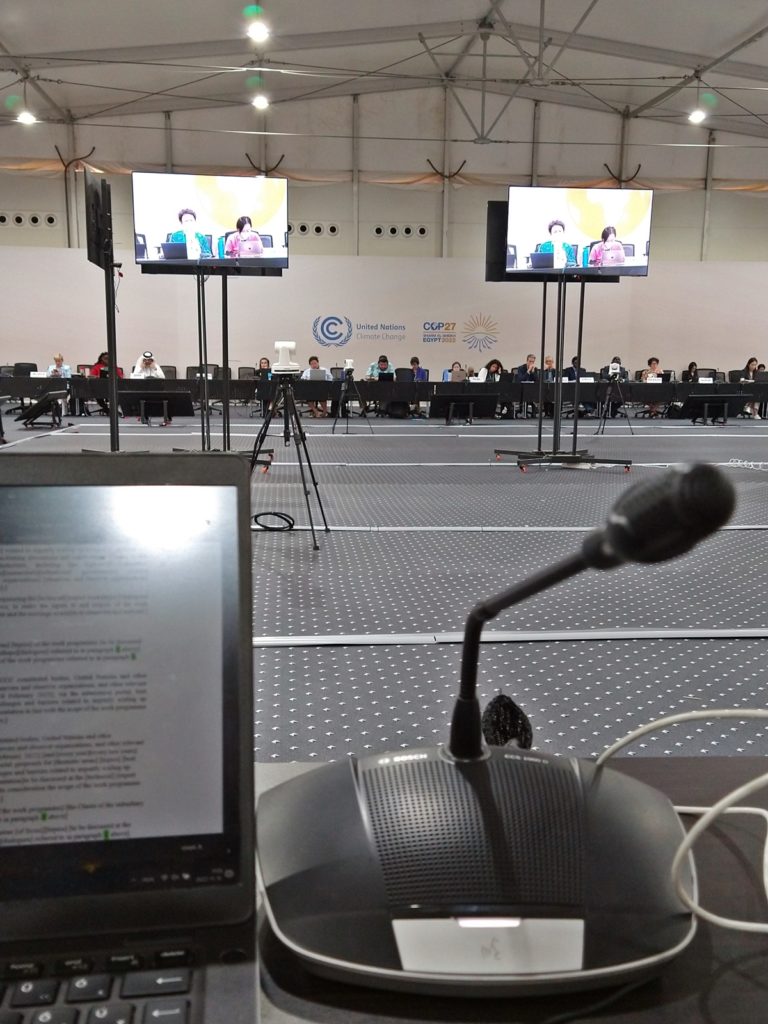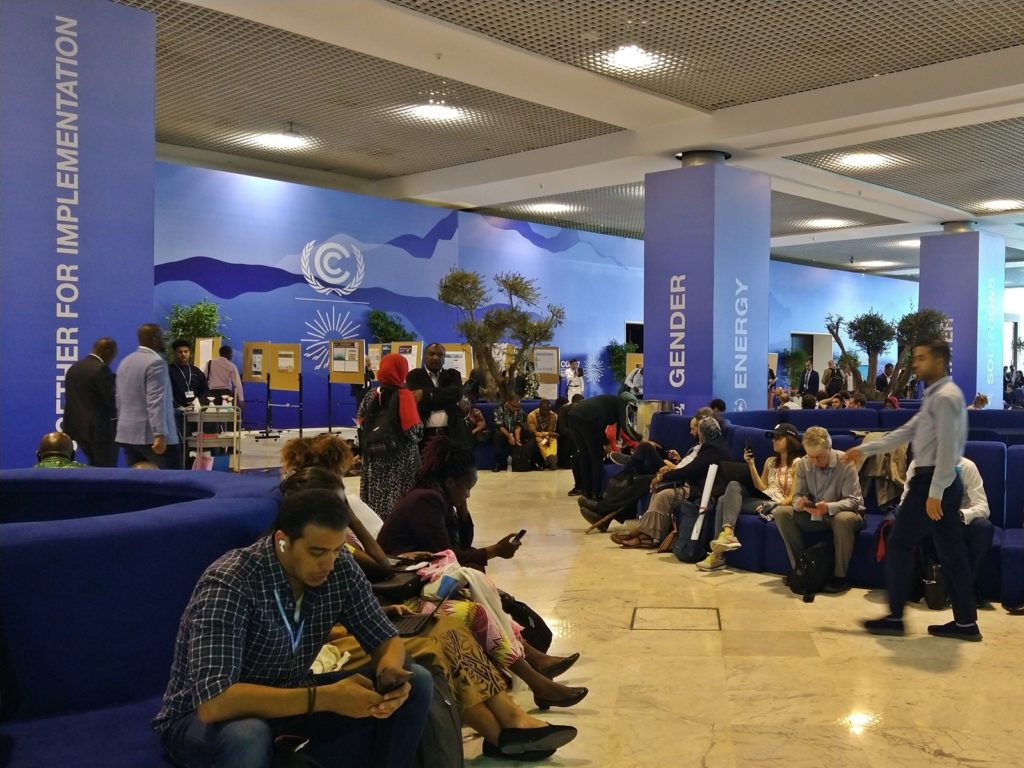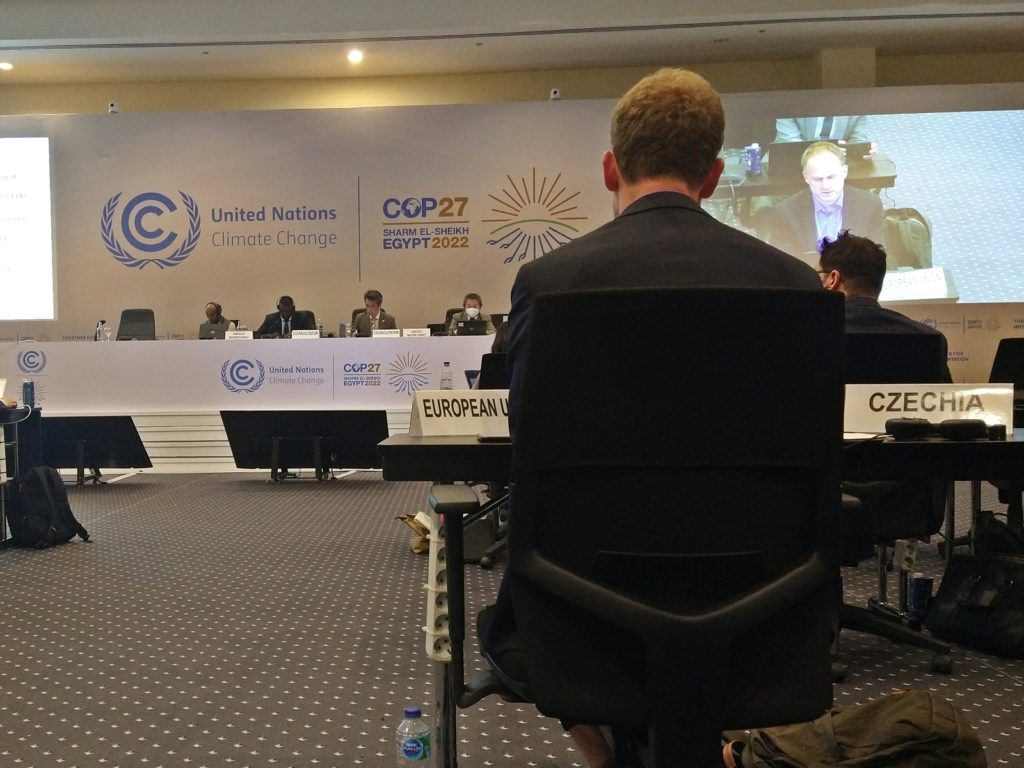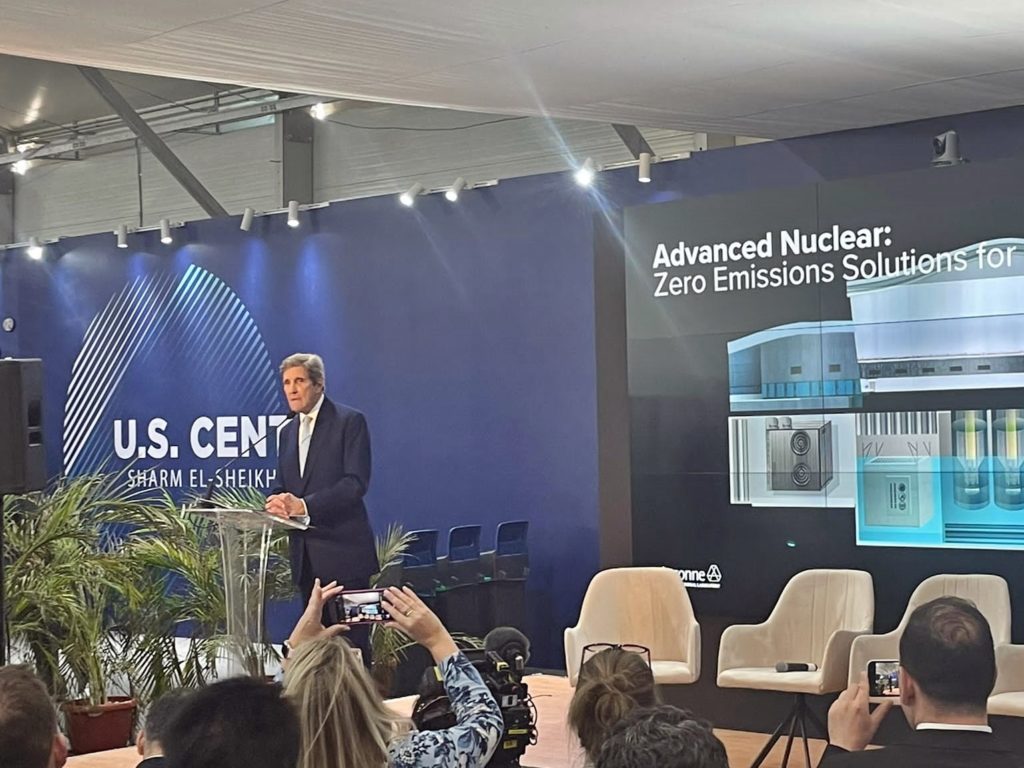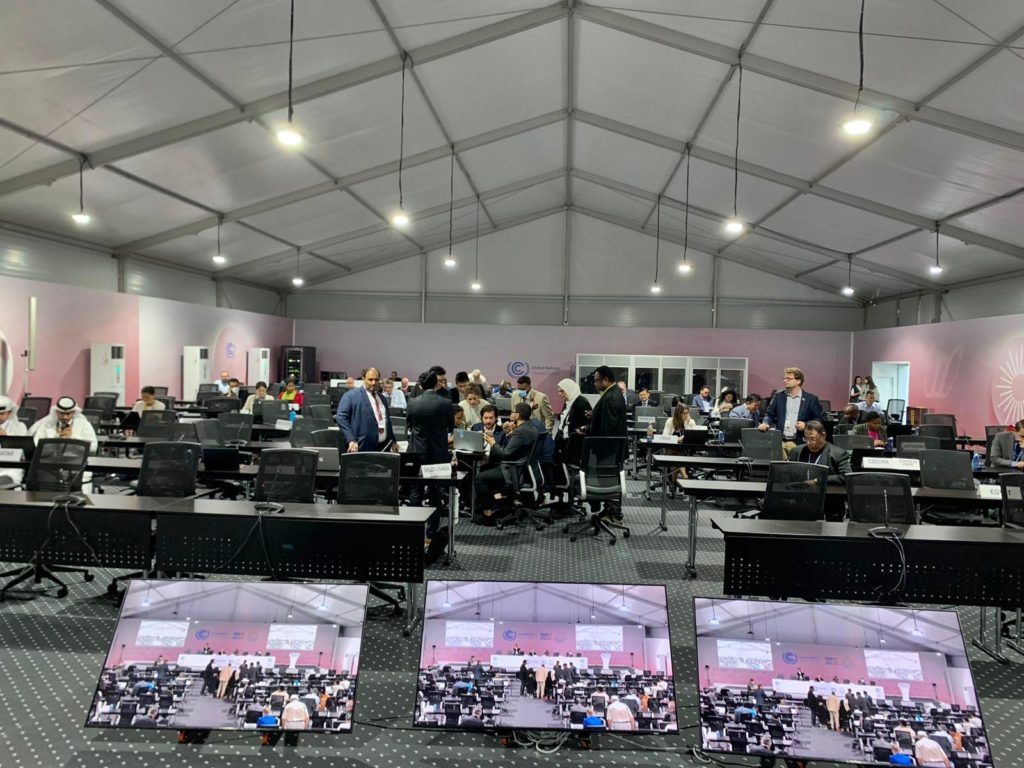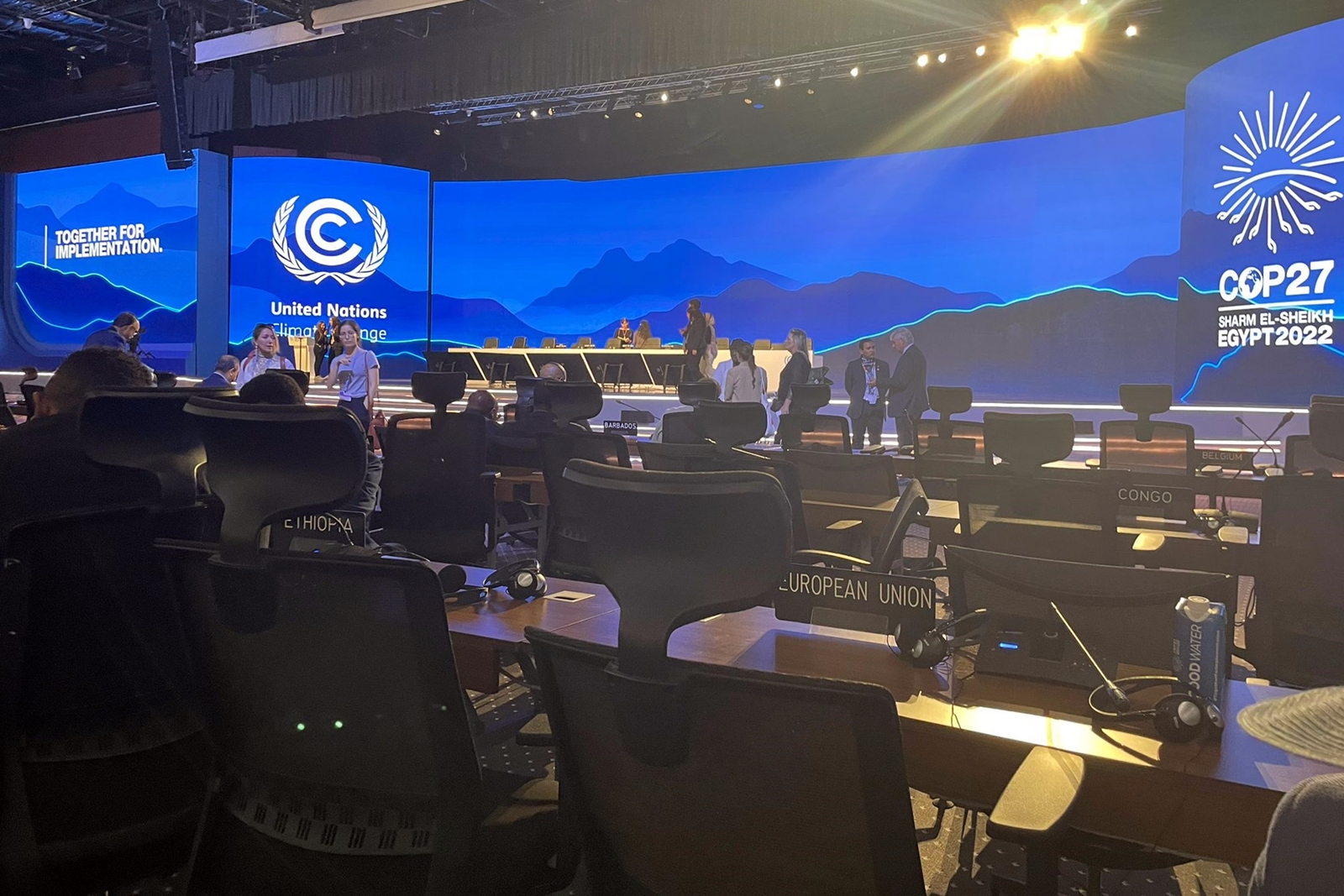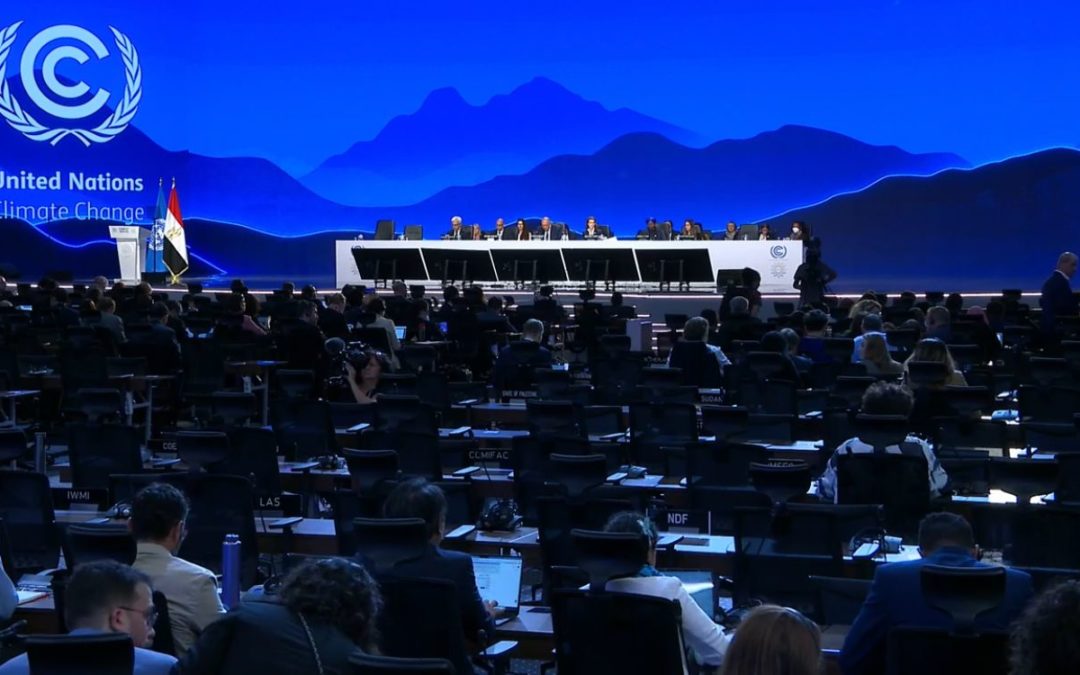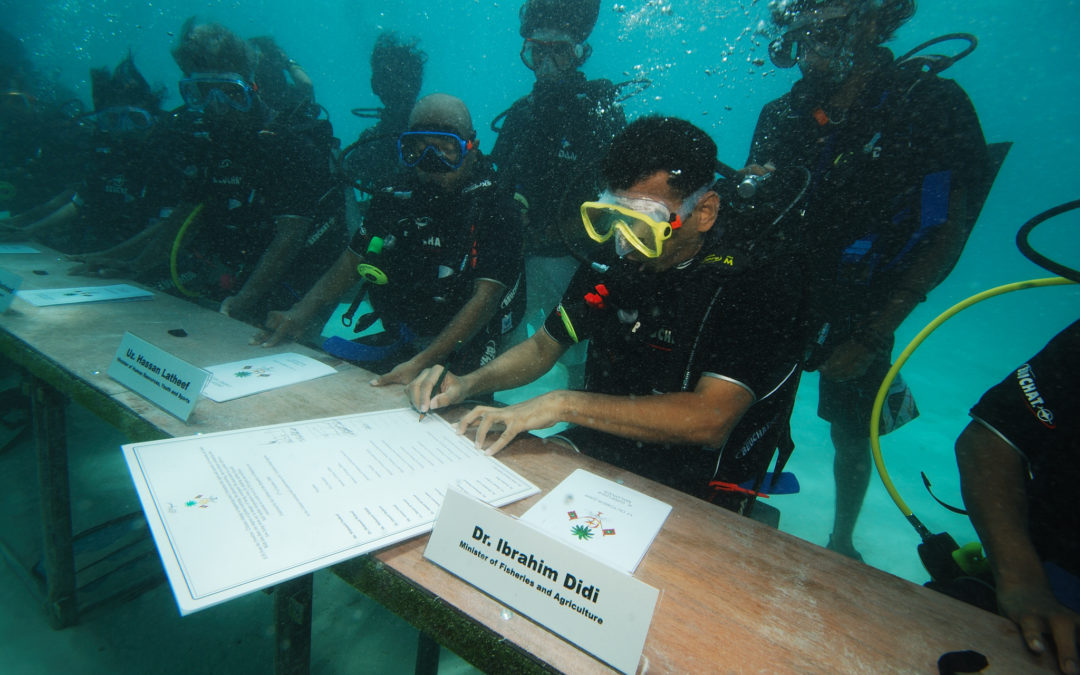Just before midnight on Saturday evening, the technical negotiations of the UN COP27 climate conference currently taking place in Egypt have ended, giving the opportunity to the ministers arriving in the second week to reach political agreements. Although we have seen some progress and the positions of developed and developing countries have converged, there is still a lot of work ahead of the negotiators in the second week of the conference in order to be able to talk about real results in Egypt. A quick analysis by a colleague of the Green Policy Center on site.
The technical subsidiary bodies of the UN Framework Convention on Climate Change, the SBSTA and SBI, concluded their work late Saturday night at the COP27 climate conference in Sharm el-Sheikh, Egypt, thus ending the technical negotiations and allowing the political negotiations with the participation of the ministers responsible for energy, environmental protection and finance on the open issues to begin in the second half of the conference. Although the parties managed to reach an agreement on several technical issues, solutions are still waiting for the really big topics.
Several technical issues were closed, or at least an agreement was reached to continue the work. It is an important step forward that the parties managed to finalize several detailed rules defining transparency and monitoring rules, which are essential in order to see how we are doing in terms of greenhouse gas emissions. In addition, despite the opposition of some developing countries, it was also agreed that the UN Framework Convention on Climate Change and the organizations responsible for civil aviation and shipping, ICAO and IMO, will continue to cooperate in the future in order to take appropriate steps to reduce emissions. Since these sectors are serious emitters, proper coordination between the various organizations is important. However, some developing countries feared that the new sectoral strategies of these bodies would require their national airlines and shipping companies to make major improvements and investments in order to reduce emissions, so they tried to slow down the negotiations, but a compromise was reached in order to maintain cooperation between the organizations.
In addition, the second technical dialogue of the Global Stocktake was also an important result, as this allowed the parties to better understand how they are doing with the implementation of their national emission reduction policies and what difficulties they have, where they will need additional support. The Global Stocktake process is one of the most important tools of the Paris Agreement, as every five years countries review how they are doing with their national commitments and can then define new medium-term commitments. In view of the fact that, according to the latest reports of the UN environmental and climate change organizations, we are not aligned with the 1.5°C temperature goal necessary to avoid the catastrophic consequences of climate change, therefore it is definitely important to increase the level of ambition.
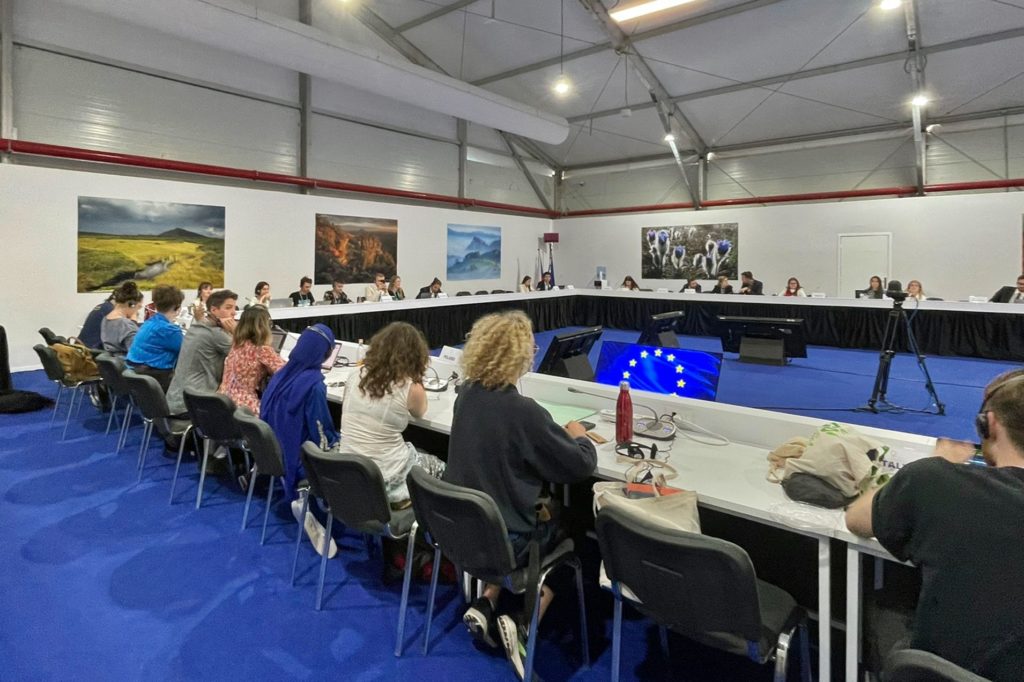
However, the results of first week’s negotiations cannot be described successful in terms of the negotiations under the mitigation work program designed to increase the mitigation ambition as soon as possible. According to the latest science, we must halve our global emissions by 2030, which is why this work program was created at last year’s climate conference in Glasgow, and the task of this year’s conference would be to finalize the rules of the process and launch its work. Unfortunately, for the time being, opinions are still divided on many issues. According to the developed countries, the process should last until 2030 and should result in a real increase in ambition with the involvement of the private, civil and the financial sectors along the lines of the ministers’ annual political guidelines. Compared to this, some of the developed countries see only a one- or two-year work program, where the developed countries share their experience, technology and money with the developing ones. According to their point of view, until the developed countries make more resources available to them, they will not be able to make progress in reducing emissions. While this is a completely well-founded claim on the part of some developing countries, it is less so on the part of the Gulf-states which still hold a developing status to this day, or China or Brazil, which are among the largest economies. The ministers must bridge these differences of opinions in the second week.
One of the tools to do this can be to solve the issue of financing. Until now, the question of compensating for loss and damage caused by the negative effects of climate change has caused serious debates. Now it has been included in the agenda at the Egyptian climate conference, despite the fact that it was opposed by several developed countries. According to their point of view, there are already financial mechanisms under the UN to deal with the issue and the establishment of a new financial fund would not solve the issue by itself, however, for the sake of progress, they see a chance for the developed countries to give in to the demands of the developing countries. However, the European Union and its member states have regularly emphasized that public funds alone will not be sufficient to solve the challenges caused by climate change, and it is necessary to align the entire global financial processes to a climate-friendly operation. However, the developing countries only evaluated this as a distraction, so the issue was not put on the agenda in the end.
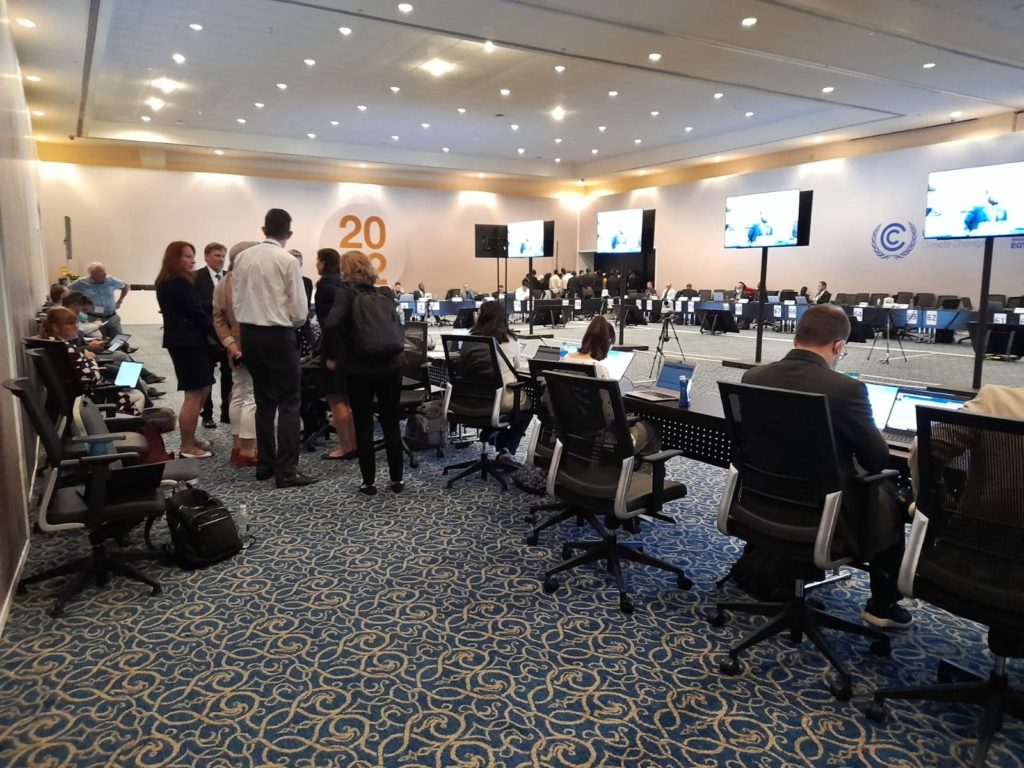
To make the task before the ministers even more complicated, not only the mitigation work program, but also a possible adaptation work program is currently being developed in Egypt. Here, the developing countries want to connect the two processes and only agree to the extension of the mitigation work program until 2030, if this also happens in the case of the adaptation work program.
The negotiations are also complicated by numerous technical challenges; the organizers are not handling situation well in many ways; issues with the internet, sound systems and overall organization cause a lot of difficulties for negotiators to participate effectively, and the Egyptian authorities are trying to make it impossible for civil organizations to participate in the conference, while almost 600 oil and energy industry lobbyists were able to take part – a new record. And then the delegates even have to deal with the surveillance of the Egyptian secret service, while such important topics as military emissions, which accounts for around 5% of global emissions, are not even on the agenda. The ministers therefore face very serious challenges in the second week of the conference in order to call the COP27 negotiations a success.
